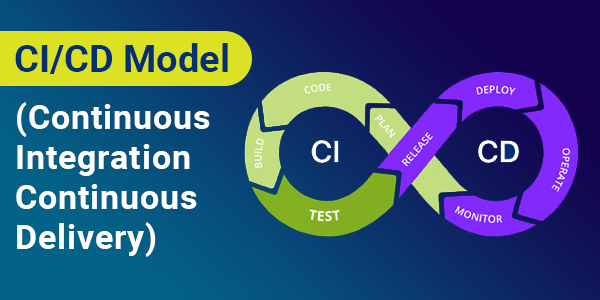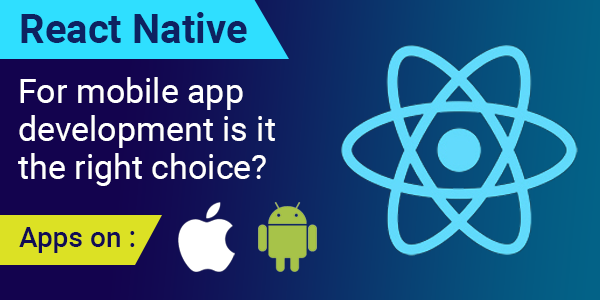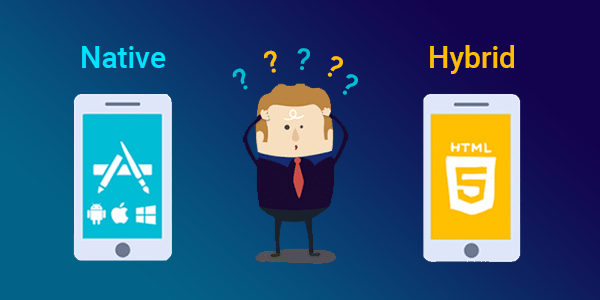2- Why
to choose react native for mobile app development project?

React Native for mobile app development: Is it the right choice?

For the 21st century, mobile phones are like souls, and apps are like 'The Holy Grail.'
We can't just do without it, not even for a second, quite literally!
For developers and mobile app development companies, mobile apps' utter need is what works in their favor. It is where they can cash.
However, quite sometime before, this opportunity was a dangerous one. Since users sub-divide into Android and iOS platforms, developers were faced with this grave responsibility to code exactly similar apps for both.
Before React Native came into the picture, iOS and Android required two different codebases, different programming languages, and varied APIs. Not only was this a tedious process, but it made developers work twice as hard for two platforms and cost twice the bucks as well.
Such concerns necessitated a mobile application development platform that could code apps for both iOS and Android phones.
And there came React Native- an open-source mobile application framework by Facebook, ready to take all your coding and android app development woes.
It is perfect for developers who wish to develop an iPhone app or an Android one with native UIs using a toolkit of their choice, i.e., JavaScript. It is a developer fascination, allowing you to code apps fast for an affordable price.
What is React Native?

React Native, a product by Facebook, came to its inception after an internal hackathon to create native UI elements using JavaScript. They needed a single codebase for iOS and Android to remove any work duplication and asymmetrical apps.
Since then, it is a popular mobile app development service, a favorite of entrepreneurs. Tech giants like Skype, UberEATS, Facebook, Instagram, Pinterest, Vogue, Tesla, Bloomberg, and so many more already employ React Native for iOS and Android platforms.
And then there are cost benefits to enjoy when choosing React Native. The framework supports all mobile formats and helps hybrid mobile app development prospects lucidly.
Typically, you would need different programming languages, Java for Android and Swift/Objective C for iOS. However, React Native removes this concurrency. Using it, you can code functional apps on both platforms in less time using just one codebase.
For developers, React Native is like a cloud with a silver lining. It facilitates an easy and hassle-free creation for mobile apps. All you have to do is code an app in JavaScript, deploy it on both Android and iOS, and your mobile app development shenanigans will get a lot easier.
If you're somebody who's transitioned from Android to iOS or vice versa, you've seen React Native in action (thanks to cross-platform mobile app development), mirroring each other on both platforms with all its features intact.
How popular is React Native?

React Native has achieved tremendous recognition due to its cross-platform coding nature that strains less on your budget.
So, how popular is it exactly?
It occupies over 1.86% of the overall app market share, 5.21% of the market share in top apps, and 2.5% market share in new apps. Amongst the top 500 apps built, over 14.85% of the installed apps possess a React Native platform.
And that number is impressive for a new programming framework. React Native is the third most popular programming framework, right after Kotlin and AAC (Android Architecture Components).
Thinking about why you should opt for hybrid mobile app development via React Native?
Well, let's understand this with a use case.
There are more than 2 million apps on Google Play Store. Of course, they are your preferred customer base. But then iOS users tend to spend 2.5 times more than Android users. To earn profits, you need them as well.
So, this means you need Android users because they're rich in number, but you also need iOS users because they're rich with money. In other words, you need both iOS and Android platforms for your apps, i.e., cross-platform mobile app development.
The 'Learn Once, Write Anywhere' nuance of React Native is one big reason why it's essential these days.
Why use React Native?
Unlike the erstwhile times when React Native held an enviable reputation to produce native-like apps, times have changed now. React Native is like the bread and butter for several mobile application development companies, allowing developers to indulge in hybrid mobile app development without extra effort, time, or money.
That is why React Native enjoys community support and a growing market share. With this, the world has comprehended how React Native makes it easy to code brilliant and engaging apps.
Apart from its one codebase multiple platform support policies, there are several other reasons why you must try out React Native for your next iOS and android application development prospects.
So, let's dive right into what makes React Native a one-of-a-kind programming framework.
Reason 1: It supports cross-platform mobile app development

Talk to any developer around the planet, and they'll tell how frustrating and irritating it is to maintain both Android and iOS apps for the same app logic just because they're written in two different programming languages and employ varied frameworks.
A hybrid or cross-platform ensures a consistent user experience across all mobile devices with a singular codebase. All one needs is an expert JavaScript developer who's well-versed with APIs, native UI libraries, and hybrid mobile app development.
With React Native, you create one codebase that works on iOS and Android devices. And it doesn't just work; it compiles respectively for the two platforms: the Swift code (for iOS) and Native Java (for Android).
Think about what it could mean for your mobile app development service. You no longer need two development teams for two platforms—no need to synchronize all the layouts, features, and logic. And you can still develop impressive apps at a lower budget in a lesser time frame.
Reason 2: Easy updates and tweaks
Did you release an app onto the App Store or PlayStore before realizing you need to initiate some tweaks in it?
With native apps, you'll have to reinitiate the build process and again upload the new version on the store whenever you need to add new features. Not only is this entire method quite daunting, but then you'll again go through the approval process from Apple or Google, and users would have to re-install the updated apps manually.
It was all before Code Push, a React Native and Apache Cordova framework, came into existence. Using it, you can automatically update apps during runtime, and users won't even know about it. It also means you don't need to re-launch your app or ask for permissions.
Reason 3: It possesses the same look and feels like a native app
In other words, React Native apps are not 100% Native but possess the same look and feel.
Henceforth, apps coded with that framework are not equivalent to true native apps written either in Objective C/Swift or Java. Unlike real native apps that sync your activity with the mobile system, React Native apps do so only with the app. The latter doesn't integrate closely with the system. It means your account registers only on the app and not on the system.
However, these apps are structured close to the native ones. React Native gives you the best of both worlds: a hybrid platform without any of its natural cons and hindrances.
React Native apps contain all the Native UI components. Precisely, it employs a native user interface and combines it with JavaScript.
The result: an app with similar functionality and appearance as a Native one; however, better than it.
Reason 4: React Native works best in tight budgets
Rather than building separate Android and iOS apps, you can make both using a singular code, framework, and logic, thus speeding the overall mobile app development process. While saving time is one benefit of React Native apps, another major one is saving huge bucks.
If you're a small mobile application development company or a startup, you need to maximize ROI on every penny spend. So, instead of investing in iPhone app development or Android mobile app development, you can divert those resources to hiring a React developer.
And React Native provides a better experience than Xamarin and Cordova platforms.
Reason 5: It has a similar programming model as ReactJS
As Facebook is the originator of both React Native and ReactJS, they contain the same programming modules. Therefore, the code created is simple and easy to implement in the ReactJS libraries. Hence, it makes the latter an excellent tool for mobile app development.
Every app development project is different, but React Native is the standard solution to all your problems. Its essential feature, Hot Reload, allows app developers to preview a code before implementing it. It makes sure developers commit the least number of errors and write bug-free codes. More so, it allows developers to correct and customize the app while it's being uploaded.
All in all, it makes things less complex for developers, supporting all app customizations and features.
Reason 6: Same programming language makes things easy
When you built an app using React Native, the entire codebase uses the same programming language for both Android and iOS. It is similar to coding an Android and iOS and uploading them on the Play Store and App Store. You can compile the app as per your choice without changing its framework.
While coding apps using React Native, most of the code is written in JavaScript and CSS. It then takes that app and runs it in the mobile platform's JavaScript Engine. Hence, you enjoy the benefits of native performance, animations, and behavior without writing the code in Java or Objective C.
Since the apps are written mainly in JavaScript, you enjoy the perks of hybrid mobile app development, like the application's instant refresh to decipher the code change.
Reason 7: It's rich with ready-made solutions and libraries
React Native comes with several pre-packed ready-made solutions and libraries, easing the overall iPhone app development process. There are testing libraries like Jest, Mocha, Chai, Enzyme to help you with bug-free code. Then there is Expo, a free and open-source toolchain used to monitor its progress and test its new features.
In linting, you can review the potential errors in your code using ESLint. Tools like Flow and PropType help in faster type checking. If you wish to achieve state management, Redux is an excellent tool for it. Also, some other tools and libraries can simplify heavy computation and build cloud-native apps.
Reason 8: Provide a personalized UX
The popular project, React Native, was built to combine the native code, framework code, JavaScript, and styling. It allows developers to create different code styles for the app from the server-side. It engages users in a personalized experience on an individual level for the same application. And let's not forget, personalization is a building stone for digital transformation.
Such uniqueness of React Native is a great way to turn a visitor into a customer. All you have to do is define the personalized style on the server-side and enrich a user's experience.
Reason 9: Easy access to third-party plugins
React Native comes with several reusable libraries available online, and there is tremendous community support that increases this number. However, building an app from scratch is a time-consuming phenomenon.
It is why you need to re-use some of the existing components!
And, this is where you'll love the 3rd party plugins.
Third-party plugins replace the need for specific web view functions. React Native acts as a bridge to connect the plugin with the native module. It leads to faster loading, better memory management, and smoother app processing.
All you have to do is search for the required plugin in your favorite community, and you can use it to enhance your app's performance and functionality.
Reason 10: The availability of an online community
Several developers employ React Native as a singular app framework. Then there is a robust community available online for any plugins and libraries related help. Facebook engineers do everything to keep the app in the top three most-used libraries. Since JavaScript is known for its wide range of applications and functionality, developers can easily pick up the language and create their app versions. When you choose React Native as your preferred mobile app development framework, you enjoy a flexible coding experience with a quality team.
You can even request third-party plugins for any app functionality from these available online communities.
Reason 11: Apps are easy to debug
Debugging is a highly pleasing but concentration requiring job. You spend hours going through the code and find the syntactical error. Since it is just one codebase, you don't have to debug two different platform-specific apps. A single bug fix removes bugs from the other operating systems, delivering a consistent user experience across all the platforms.
Whenever you're developing a native mobile app, you will need to use the platform's Integrated Development Environment (IDE), which requires some specific knowledge and skills. However, with React Native, you can use the available tools like Nuclide or Console.org.
And lastly, with its Hot Reload feature, developers can perform tasks like error handling and reviewing instantaneous results for any code update or tweak. Now compare it with native development, where you need to restart the entire system when applying the fix. The developers can push the updates simultaneously without affecting the user experience.
Conclusion

In a nutshell, this is what you must know about React Native and its connection with smooth and seamless mobile app development in a summarized manner.
- These apps are everywhere.
- They are easy to write, save a lot of time, and cut development costs.
- These apps have lower development and maintenance costs since you don't have to deal with two different OS.
- A developer can incorporate all native components in React Native. The latter is like a wrapper for the former, allowing you to add native Java or Swift code when and where you need it.
- Since you'll code using JavaScript, you don't need to learn Swift/Java or add such skills to your knowledge.
- React Native keeps on growing leaps and bounds thanks to its tremendous demand in the market.
For hybrid mobile app development, there is a better framework than React Native. And an excellent mobile application development company must take advantage of this utter need, turn it into a must-have skill set, and earn profits in the process.
Featured Articles
Latest Articles

How an Ionic App Development Company Helps You Build Scalable and Cost-Effective Apps
How an Ionic App Development Company Helps You Build Scalable and Cost-Effective Apps When a business decides to build .. Read More
By Abhinav Kumar | Feb 24, 2026

Hybrid App Development Company vs. Native Development: Which Is the Best Choice in 2026?
Hybrid App Development Company vs. Native Development: Which Is the Best Choice in 2026? Choosing the right developmen .. Read More
By Abhinav Kumar | Feb 17, 2026

Why Businesses Prefer Flutter App Development Companies Over Native Development Teams
Why Businesses Prefer Flutter App Development Companies Over Native Development Teams When businesses plan to build a .. Read More
By Abhinav Kumar | Feb 11, 2026

Cost Savings and Quality: The Value Proposition of Web Application Offshore Development
When it comes to building robust, scalable web applications, businesses are increasingly looking beyond borders to find .. Read More
By Abhinav Kumar | Jan 13, 2026

Emerging Trends in Custom Web App Development for 2025 and Beyond
The world of apps is growing faster than ever. According to Statista, the global mobile app market is expected to reach .. Read More
By Abhinav Kumar | Jan 13, 2026

Comparing Offshore vs. Onshore Software Development Companies: Pros and Cons
Today’s enterprises are casting a wider net when it comes to building their software solutions. In the last fiv .. Read More
By Abhinav Kumar | Sep 11, 2025

How App Development Companies Ensure Your App Stands Out in a Crowded Market
As of June 4, 2025, the mobile app ecosystem has never been more crowded. Google Play hosts a staggering 2,031,61 .. Read More
By Abhinav Kumar | Sep 11, 2025

Why partnering with an offshore web development company can boost your business growth
Picture this: you’re leading a growing enterprise with big digital goals, maybe a global eCommerce rollout or a .. Read More
By Abhinav Kumar | Sep 10, 2025

How to Build Effective and Scalable Web Applications – The Best Practices
A big part of any web application development is its capacity to scale in the later growth stages. Irrespective of the p .. Read More
By Abhinav Kumar | Aug 22, 2025

How Artificial Intelligence in Mobile Banking is a Game-Changer?
Let’s start this discussion with a simple question, how many of you still stand in queues outside banks just to get ge .. Read More
By Abhinav Kumar | Aug 14, 2025

Utility mobile application development role in the digital transformation
What is utility mobile application development and why it matters?At this point, mobile applications have become an inal .. Read More
By Abhinav Kumar | Jul 30, 2025

How to build a successful and agile offshore development team?
As a global trend, outsourced software development holds a market size of $92.5 billion, and a significant chunk of .. Read More
By Abhinav Kumar | Jul 15, 2025

What is VAPT and does your organization need it?
What is VAPT and does your organization need it? To no one's wonder, there is a flood of applications and softwar .. Read More
By Abhinav Kumar | Jul 08, 2025

CI/CD Model: what and why it matters in software development
CI/CD Model: what and why it matters in software development There was a time when software development was si .. Read More
By Abhinav Kumar | Jun 01, 2025

What Is Legacy Migration and Why to Consider It
What Is Legacy Migration and Why to Consider It? Software technologies and applications are on the road to an ine .. Read More
By Monu Kumar | May 25, 2025

What Makes CMMI Appraisal Necessary for Software Development Companies ?
What Makes CMMI Appraisal Necessary for Software Development Companies? During software development, your product .. Read More
By Abhinav Kumar | May 10, 2025

2- Why to choose react native for mobile app development project?
React Native for mobile app development: Is it the right choice? For the 21st century, mobile phones are like sou .. Read More
By Abhinav Kumar | Apr 30, 2025

How Digital Transformation Impacts Software Development Services
Digital Transformation and its impact on Software Development Lifecycle Today's industrial landscape ta .. Read More
By Monu Kumar | Apr 15, 2025

What is the right price for developing a mobile app?
What is the price to develop an iPhone app? Or rather, how much does mobile app development cost? Well, Kudos to you bec .. Read More
By Monu Kumar | Apr 07, 2025

Should I use Flutter for my next Mobile App Development project?
So, what was the mobile app development story before Flutter? Let's consider mobile application develo .. Read More
By Monu Kumar | Mar 31, 2025

Understanding Python Development Services and their role in building next-gen enterprise a..
From being awarded the best programming language for development to replacing the stardom held previously by Java., Pyth .. Read More
By Abhinav Kumar | Mar 15, 2025

Is there any right pricing strategy for mobile app development?
No phrase can appropriately describe the accelerating mobile app development market! Definitely, it is on a consistent b .. Read More
By Abhinav Kumar | Mar 01, 2025

Mobile App Development: Freelancer or a Software Development Company
So, you’ve decided to build software, and now you’re faced with the debatable and inevitable question: software dev .. Read More
By Monu Kumar | Feb 21, 2025

Hybrid Mobile App Vs. Native Mobile App… Am I Making A Right Choice?
This seems to be a million-dollar question when it comes for making a choice between hybrid mobile app or native mobile .. Read More
By Abhinav Kumar | Feb 11, 2025
Recent Articles
How an Ionic App Development Company Helps You Build Scalable and Cost-Effective Apps
Hybrid App Development Company vs. Native Development: Which Is the Best Choice in 2026?
Why Businesses Prefer Flutter App Development Companies Over Native Development Teams
Cost Savings and Quality: The Value Proposition of Web Application Offshore Development
